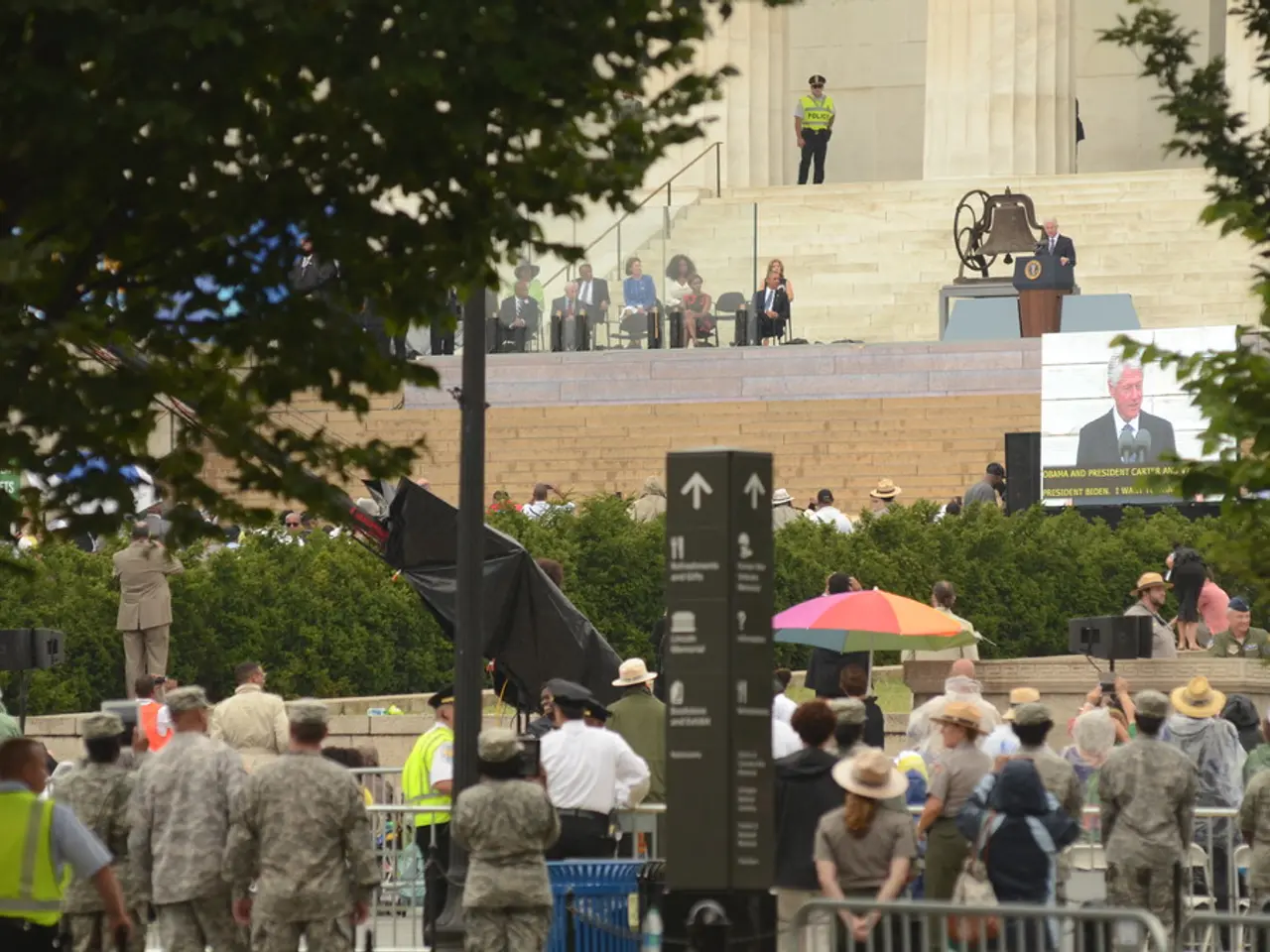United States dialogue with Iran potentially feasible, condemns 'zero uranium enrichment' stance by Tehran
Iran and the United States find themselves in a deadlock over nuclear negotiations, with no direct talks currently underway and progress stalled [2]. This impasse comes amidst a complex web of political and security obstacles on both sides.
Internal signals from Iran suggest a willingness to pursue negotiations before the opportunity closes, particularly under the leadership of the Supreme National Security Council (SNSC), which has recently appointed Ali Larijani—a supporter of negotiations—as its secretary [1]. However, Iran remains firm in its rejection of any deal that would require it to halt uranium enrichment on its soil [1].
Broader regional security and trust issues, especially those related to Israel, are a significant hurdle. The United States is unlikely to provide security guarantees while Iran poses a threat to Israel, complicating any potential deal [5]. Iran, on the other hand, demands broad security assurances, including guarantees against US reneging on agreements and assurances that its security concerns and animosity toward Israel will be addressed [5].
The European E3 powers (UK, France, Germany) are applying pressure, warning that unless Iran demonstrates a commitment to negotiations by the end of August, they will trigger the snapback of UN Security Council sanctions. Iran fears the reimposition of sanctions but remains unwilling to concede on uranium enrichment [1].
Meanwhile, the legacy of the 2025 Israel-Iran conflict and sustained sanctions continue to weigh heavily on negotiations. Other international actors, like the EU or China, may seek to facilitate but are currently less influential or constrained by their own tensions with the US [5].
Amidst this backdrop, Iran has threatened Gulf security if Europe moves forward with sanctions [6]. This threat was in response to US forces bombing several Iranian nuclear facilities, including Natanz, Fordow, and Isfahan, on June 22 [7]. Iran retaliated by striking the US Al Udeid Air Base in Qatar [8].
Despite the escalating tensions, there have been indications of a potential thaw. Iran's First Vice President Mohammad-Reza Aref has stated that Iran could hold direct nuclear negotiations with the United States if "favorable conditions" are established [4]. Aref also stressed that Iran is not opposed to talks but rejects any process aimed solely at advancing US demands [9].
However, contradicting President Donald Trump's assertion, Iran has not requested a meeting with the United States [10]. Trump has suggested discussions with Iran following the US strikes, but Iran demands US compensation before nuclear talks can resume [11].
In conclusion, while some groundwork for resumed talks exists, direct nuclear negotiations remain at a deadlock with significant political and security obstacles on both sides. The stakes are high, and the path to a resolution remains uncertain.
The complex web of political and security issues, including regional tensions with Israel and the reimposition of UN sanctions, remain obstacles in resuming direct nuclear negotiations between Iran and the United States. Despite indications of a potential thaw, such as Iran's First Vice President Mohammad-Reza Aref's statement about holding direct negotiations under favorable conditions, both sides are firm in their rejection of any deal that compromises their core demands, as seen in Iran's refusal to halt uranium enrichment and the United States' unwillingness to provide security guarantees while Iran poses a threat to Israel. Thus, the ongoing political and security obstacles are the cornerstone of the stalled general-news and politics impasse between these two nations, making progress a difficult and uncertain pursuit.







